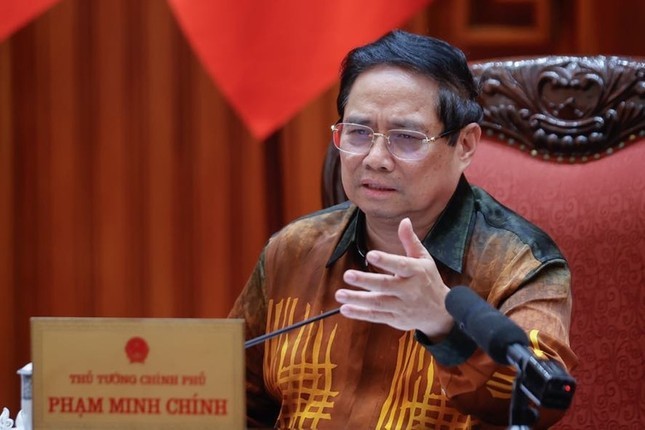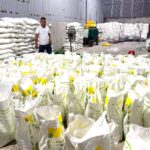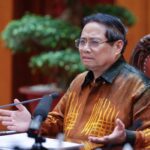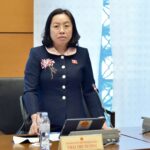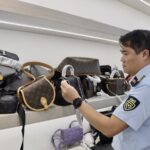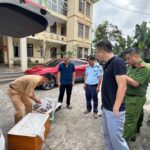Prime Minister: The International Financial Center must succeed
In the afternoon of May 22, Prime Minister Pham Minh Chinh chaired a meeting to discuss and provide opinions on the draft National Assembly’s Resolution on the construction of an international financial center in Vietnam.
At the meeting, delegates continued to give opinions on the 29th draft of the National Assembly’s Resolution, which has undergone several revisions and amendments.
Following the directions of the Politburo, the Government and the Prime Minister have instructed ministries, sectors, and localities to actively and resolutely deploy tasks related to the development of the international financial center in Vietnam. This includes the proactive drafting of the National Assembly’s Resolution on the construction of the international financial center, to be presented to the Politburo and then to the National Assembly for consideration and approval during the ongoing 9th session. Simultaneously, specialized decrees are being prepared to establish and operate the center as soon as possible.
The meeting discussed various related issues, including: the goals of establishing the international financial center; its model and development orientations; key sectors and products; policies and special mechanisms; infrastructure, human resources, and visas; the adoption of international regulations and practices; foreign exchange liberalization and banking activities; and dispute resolution in accordance with international standards.
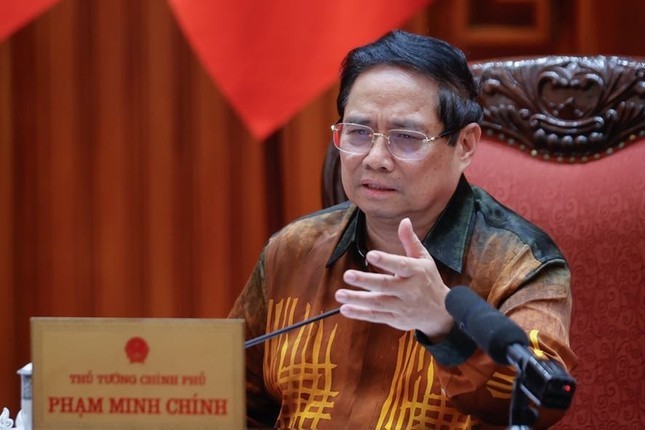
Prime Minister Pham Minh Chinh speaks at the meeting. Photo: VGP.
In his conclusion, the Prime Minister emphasized that we have set two 100-year goals (by 2030, to become a modern industrialized developing country with a high middle income; and by 2045, to become a developed country with a high income). To achieve these goals, we must maintain double-digit economic growth, create a favorable and stable environment both internally and externally, and build momentum, strength, and stability for rapid, sustainable, and stable development.
To achieve double-digit growth, we need capital, and as we currently lack capital, it is imperative to establish and develop an international financial center to supplement financial resources for our 100-year goals.
The Prime Minister stated that to achieve the set goals in building the international financial center, the legal environment must be competitive, transparent, progressive, and open; infrastructure must be modern, advanced, and interconnected to meet development requirements, align with global trends, and suit Vietnam’s specific conditions and circumstances; human resources must be professional and of high quality; necessary conditions for the center’s operation must be in place; and governance must be smart and modern.
Delegates express concern over the sale of counterfeit and imitation goods at Ninh Hiep Market
During the discussion session, delegate Nguyen Thi Thu Nguyet from Dak Lak province reflected on the recent public concern over commercial fraud, counterfeit and substandard goods.
She acknowledged the government’s swift response in launching a high-intensity campaign against counterfeit goods but expressed worry about the increasing trend of counterfeiting, which has permeated traditional markets, e-commerce platforms, and social media networks.
Sharing similar concerns, delegate Thai Thu Xuong from Hau Giang province voiced anxiety over the prevalence of counterfeit, imitation, and substandard goods, including fake milk and medicine.
Particularly, the delegates were dismayed by the situation at Ninh Hiep Market in Gia Lam, Hanoi, where a wide range of counterfeit and imitation goods are openly sold. When inspection teams arrive, the entire market closes down. The female delegate questioned the role and effectiveness of market management in such cases.
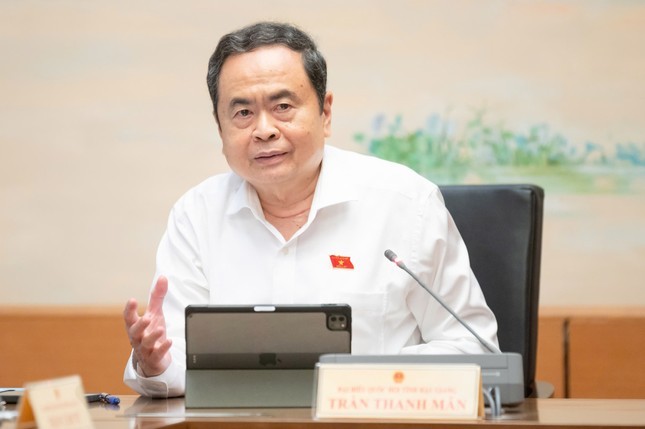
National Assembly Chairwoman Tran Thanh Man. Photo: N.Y.
National Assembly Chairwoman Tran Thanh Man agreed with the delegates’ assessment of the need for more fundamental solutions to counterfeiting and substandard goods. She emphasized that “this issue must be carefully considered.”
The National Assembly Chairwoman highlighted that with a population of over 100 million, Vietnam boasts a vast domestic market. However, to encourage Vietnamese people to prioritize Vietnamese goods, product quality must be ensured.
Over 10,400 people from the Ministry of Finance retire early
The Prime Minister has recently issued Decision No. 974 on supplementing the regular state budget expenditure estimates for central ministries and agencies in 2025 (batch 3).
In this batch, the Ministry of Finance has the highest number of supported individuals, with over 10,400 people, and a total budget of over VND 11,400 billion, accounting for over 76% of the total support budget.
According to the Government’s organizational restructuring plan, the Ministry of Finance will be merged with the Ministry of Planning and Investment, and the Vietnam Social Security will be integrated. Additionally, some functions and tasks of the State Capital Management Committee and the National Financial Supervisory Commission will be transferred to the Ministry of Finance. The new ministry will retain the name “Ministry of Finance.”
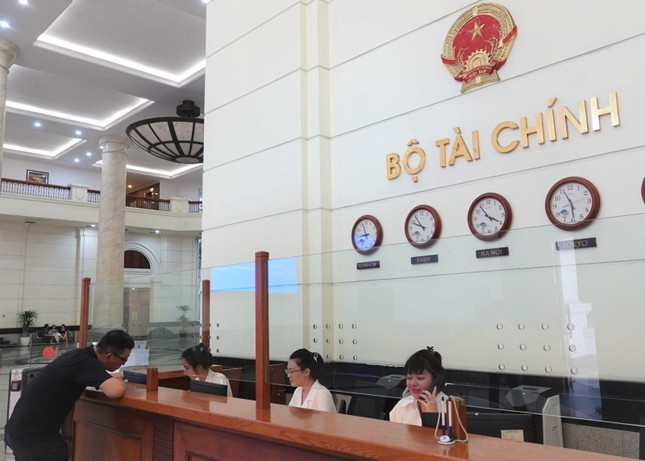
The Ministry of Finance receives over VND 11,400 billion to implement policies for over 10,400 people retiring early.
Since March, the restructured Ministry of Finance has had 35 units, including seven units downgraded from General Department to Department level. The number of department-level units has decreased by 3,600, equivalent to a 37.7% reduction. The number of leadership positions at the head and deputy head levels has also decreased proportionally to the reduction in units.
Following the completion of the merger, Minister of Finance Nguyen Van Thang stated that this year, the number of civil servants, public employees, and workers in the finance sector will decrease by 9,460 people, and it is expected to further decrease by about 10,000 people in 2026.
The truth behind the reluctance of over 5 million business households to ‘grow’
For over ten years, Ms. Nguyen Thi Ha from Hanoi has been selling stationery, and she has often contemplated expanding her business to include printing services and registering a formal enterprise. However, these ideas have remained just that.
“Many people have suggested that I establish a company to make it easier to do business on a larger scale and supply products to companies and schools. However, I find it complicated, especially with the need to issue invoices. So, I prefer to keep my business small and simple. Bookkeeping and tax obligations would become more complex if I stopped paying the lump-sum tax. Even entering product codes and conducting inventory checks on the sales software is cumbersome,” shared Ms. Ha.
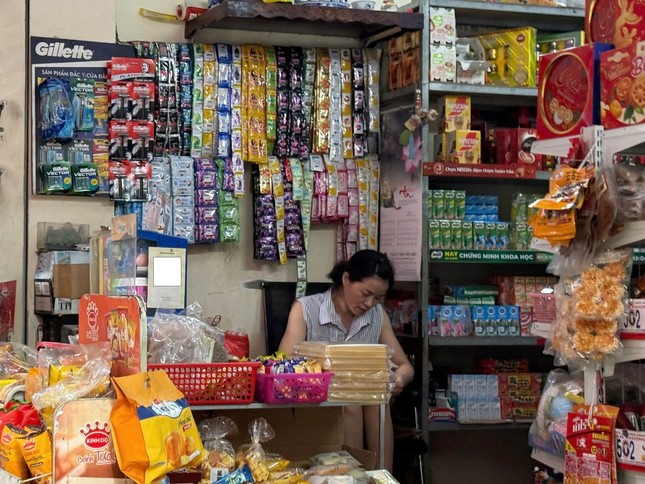
Business households have traditionally operated with simple procedures and minimal constraints.
Currently, there are over five million business households in Vietnam, contributing approximately 30% to the country’s Gross Domestic Product (GDP) and providing employment for tens of millions of workers.
A simple comparison reveals the prevalence of business households among the Vietnamese population. On average, there is one business startup for every 20 Vietnamese citizens, resulting in one business household for every 20 people. In contrast, there are currently over 940,000 enterprises in Vietnam, equivalent to approximately one enterprise for every 106 citizens.
In an interview with Tien Phong newspaper, economic expert Le Duy Binh, Director of Economica Vietnam, shared his insights: “The policy of reducing taxes for three years is a positive step, but it is not enough to convince business households to transition into enterprises. This is because the benefit of tax exemption lies in the future, while compliance costs must be paid regularly after establishing an enterprise.”
According to Mr. Binh, the business household sector is diverse, ranging from large-scale operations to small-scale, subsistence-level businesses. To encourage business households to transition into enterprises, a separate legal framework is necessary, one that is more suitable for the current small-scale business model. We cannot apply the complex model of a large enterprise, with its accounting system, management system, director, board of supervisors, chief accountant, and intricate financial reports, to a small business selling noodles or a startup.”
“Amend the Enterprise Law or create a separate law for individual businesses. Changing the name is also important. Instead of a private enterprise, call it an individual enterprise to make it more familiar. A suitable name will lead to suitable regulations,” suggested Mr. Binh.
“Red Alert” for Vietnam’s Durian Industry
Mr. Vu Duc Con, Chairman of the Dak Lak Durian Association, the province with the largest durian area and output in the country, recently sent an open letter to the Minister of Agriculture and Rural Development, Do Duc Duy.
In his letter, Mr. Con mentioned that China is the main market for Vietnamese fresh fruits, especially durian. After signing the Protocol on Plant Quarantine, Vietnamese durian officially entered the Chinese market.
With an export turnover of 3.2 billion USD in 2024, the durian industry shows great potential and deserves investment in infrastructure development, packaging facilities that meet food safety standards, and transparent export procedures with product traceability.
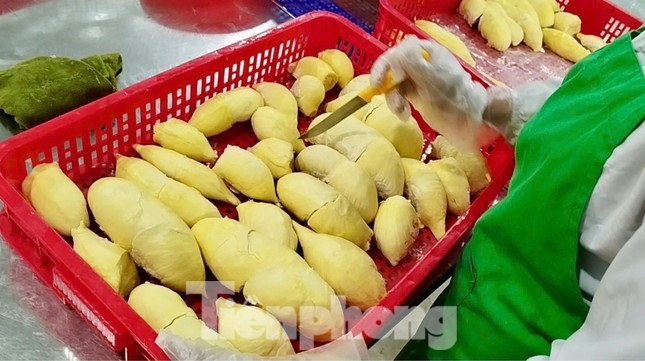
Durian exports are facing challenges.
However, since 2024, China has detected the presence of cadmium and golden rice yeast in Vietnamese and Thai durian. As a result, Chinese partners have requested that 100% of durian shipments be accompanied by cadmium and golden rice yeast test reports before customs clearance. If any residue is detected, the packaging facility code and growing area code will be suspended by the Chinese side.
According to the Chairman of the Dak Lak Durian Association, approximately 55 growing area codes and 61 packaging facility codes for durian have been revoked so far. Since September 2023, China has not approved any additional growing areas or packaging facilities.
With 150,000 hectares of durian plantations nationwide, only about 20% of the area has been granted growing area codes.
Regarding the issue of Vietnamese durian repeatedly violating food safety standards (cadmium and golden rice yeast), Tien Giang province, a major durian producer, has had many codes revoked. The reason for the cadmium detection in durian is attributed to high levels of cadmium in the soil. Additionally, cadmium has been found in organic and inorganic fertilizers used in durian plantations.
The practice of freely buying and selling codes through “export consignment” at border gates has been exploited, making it difficult for importing countries to trace the origin of products from batches that do not match the declared codes. Enterprises and cooperatives whose codes have been misused are often unaware of this until their codes are revoked, and they have no means of retrieving them.
In Dak Lak, during the period when China tightened its control, trucks from Tien Giang were redirected to packaging facilities with codes in Dak Lak. The goods were unpacked for inspection and sampling, with the requirement to specify the container number, growing area code, and packaging facility code. This situation could potentially impact the codes of other localities.
Unveiling the Truth: Inside the Alleged Fake Fertilizer Factory in Dong Nai
In early 2025, authorities in Dong Nai uncovered a counterfeit fertilizer operation, seizing nearly 20 tons of raw materials and fake products. This discovery sheds light on the illicit activities that threaten the agricultural industry and underscores the importance of vigilant monitoring to protect farmers and consumers alike.
“Prime Minister: Developing a Digital Currency Strategy Tailored to Vietnam’s Needs”
“The development of an international financial center is key to unlocking the country’s growth potential, according to the Head of Government. By establishing a robust financial hub, we can attract global investment, foster innovation, and create a thriving economy that benefits all.”
“Counterfeit Fashion Stores Thrive in Da Nang’s Tourist Hotspots.”
The market management force seized nearly 2,000 items, including handbags, wallets, clothing, accessories, and shoes bearing renowned labels such as Hermès, Chanel, Gucci, Christian Dior, Celine, Prada, and Louis Vuitton. The items, which lacked proof of origin and proper documentation, were confiscated as part of a routine inspection to uphold market regulations and protect consumers from illicit trade.
Uncovering Food Safety Concerns in Quang Ninh: 2,000 kg of Untraceable Food Products and 5.6 Million Unaccounted Clam Seeds
Let me know if you would like me to tweak it further or provide additional suggestions.
The Quang Ninh Market Management Force has launched a crackdown on illegal activities, and their efforts have yielded significant results. In just one week of their intensified campaign, they have successfully handled 43 cases of violations, showcasing their dedication to upholding the law and maintaining order in the region.

